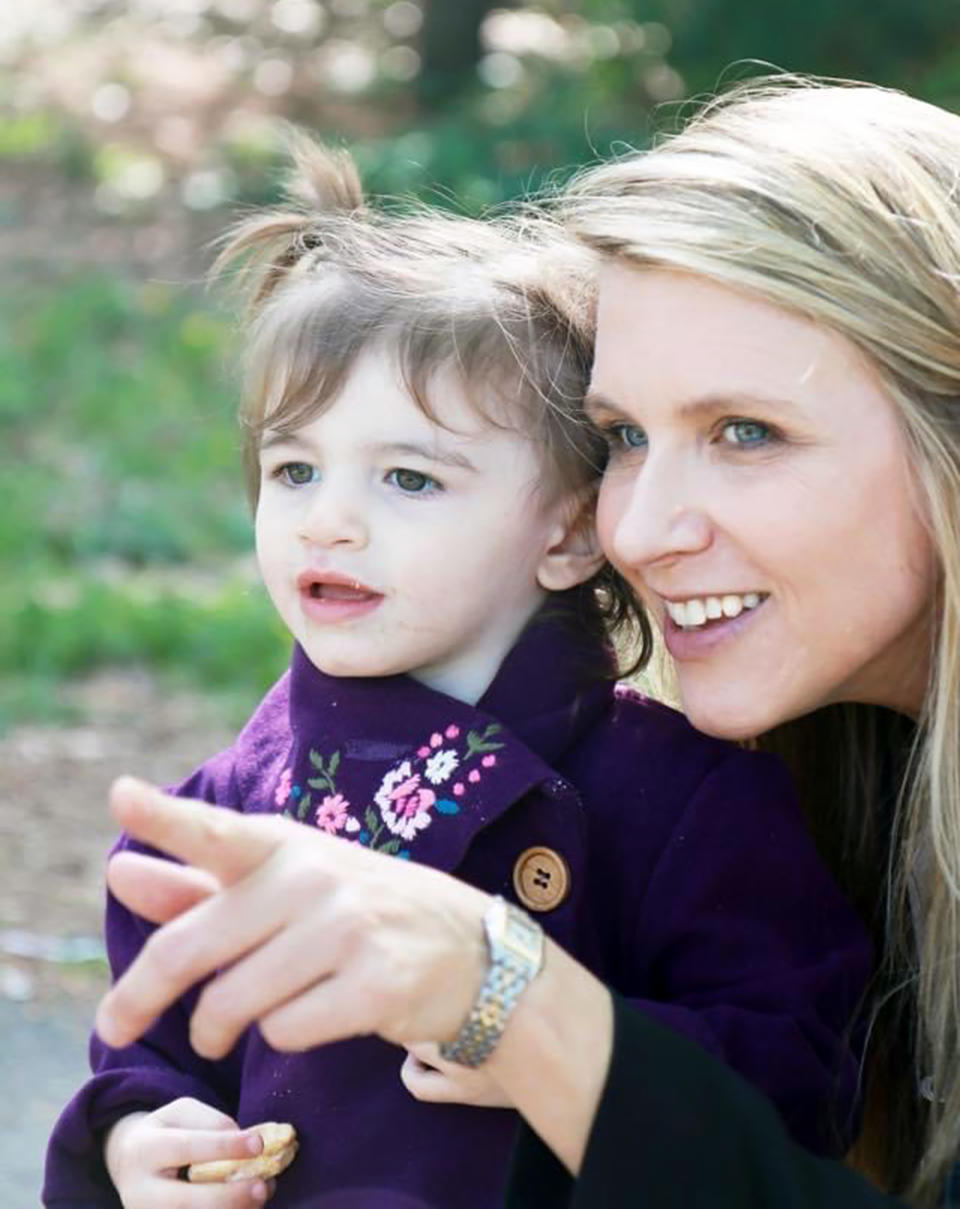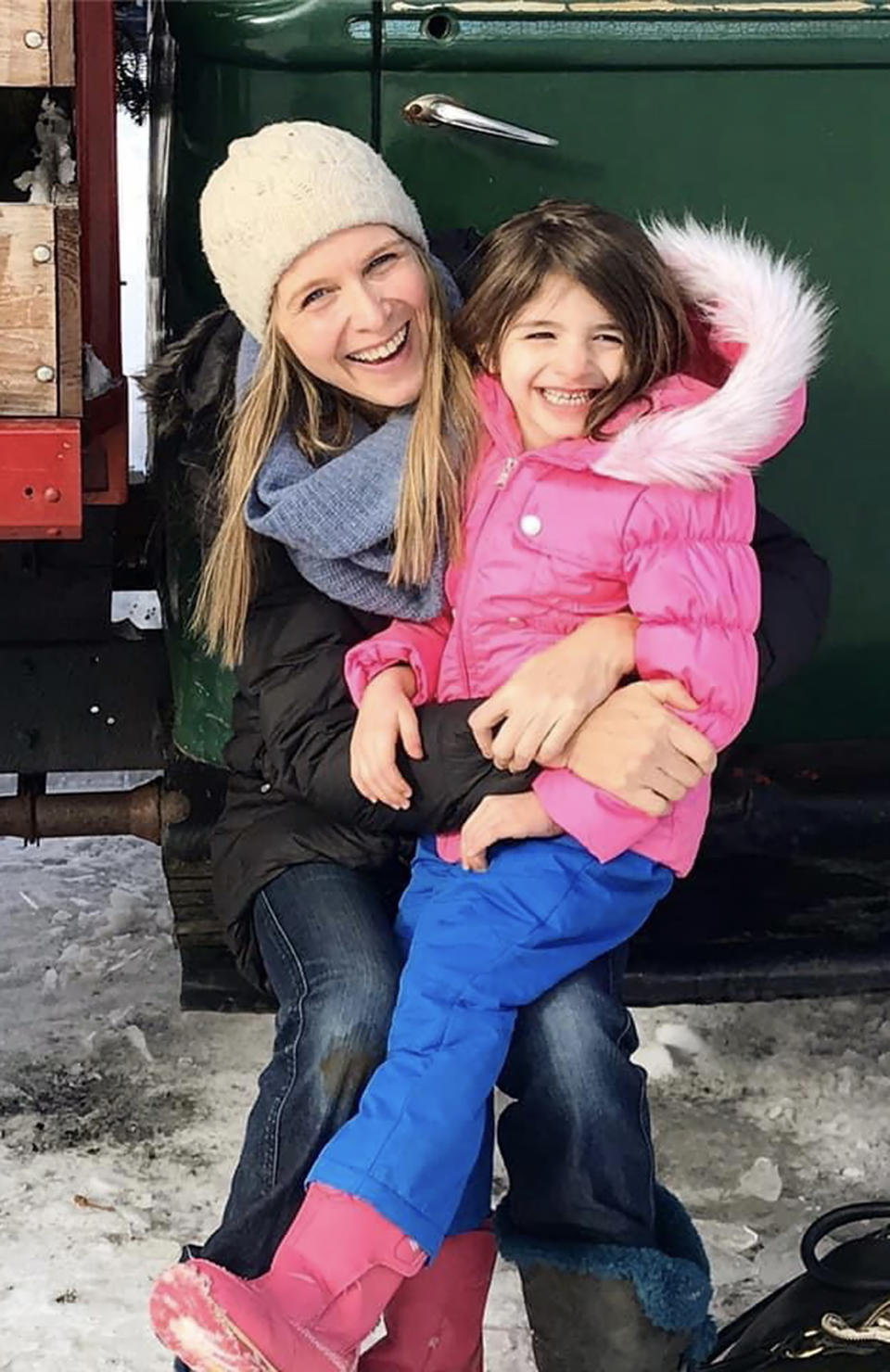How a fortune teller woke up my biological clock at age 44
The Burmese fortune teller held my palm gently. I felt his papery skin while, with his free hand, he ran his fingers across a haphazard column of numbers scrawled on a scrap of paper. A brown lyongi knotted neatly at his waist, his gray hair cut short and smelling of aftershave, he looked more like an accountant than a fortune teller.
Eventually he looked up. One blue eye and one milky white eye fixed me with a disconcerting stare. “She will be born in the warm season.”
I laughed nervously. “I’m 44. I’m not having another child. I think that ship has sailed."
“No, not a miracle,” he said, ignoring my flippant tone, still holding my hand. “She wants to be born and she will bring you joy.” He smiled widely, exposing a small space between his two front teeth. “That will be 40,000 kyat.”
It was searingly hot at Lucky Seven, the Burmese teahouse in downtown Yangon where he had set up shop, and where my friend Polly had, on a whim, decided to purchase his services for us both. Sliding back next to her at our table, I pushed aside the steamed buns and Shan noodles and shook my head. “That was weird. He said something bizarre.”
“Did he tell you to stay away from men born on Wednesday like he told me?” Polly laughed as she paid our check. For some reason, I chose not to answer.
That night, I opened the window of my hotel room to catch the listless breeze while I replayed the fortune teller’s words in my head. A baby?! I’m a psychologist — I believe in science, not in palm reading. Yet over the next few days, I couldn’t stop noticing babies — in the market, in carriages, in slings across women’s backs. I once had a high school art teacher who asked us to spend a week looking for diamond shapes. It turns out, when you’re looking for them, diamond shapes abound. The same is true for babies.
What the fortune teller didn’t know was how hard I had worked to stop seeing babies. Twenty years before, after my first miscarriage at five months of pregnancy, I was so distraught that I feared I might never emerge from the abyss into which I had fallen. “The baby has no heartbeat,” the doctor had said, after a routine scan. I couldn’t process the words.
We kept trying, but my body stubbornly refused to stay pregnant. Once, twice, five times it rejected the fetus inside me. No matter how gently she phrased it, nor how often she said it, my doctor’s news felt like a dagger. Even after I successfully carried my daughter Yael to term, I held onto my longing for a missing baby like an appendage. We tried for a second. Eventually my husband and I gave up trying; shortly after, we got a divorce.
After a few years of being on our own, my daughter Yael and I were finally OK. Seeing pregnant women on the train no longer made me weep and turn away. Yael had filled the hole inside me with her twinkling eyes and wide smile. We were a family, however small. But all those years later, the fortune teller rekindled my yearning.
That week in the Bogyoke market, I let myself buy Zee Kwet, the ubiquitous papier mache owl pairs that I had studiously avoided for years on all my previous trips because the female of the pair was always pregnant. “To bring luck, make sure they stay together,” the shopkeeper said. “No big deal,” I told myself. But after I carried them home, nestled carefully in newspaper, and placed them on my bureau next to each other, I knew something had shifted.
Over the last 25 years, my work with trauma survivors has reminded me repeatedly of the paradoxical nature of longing. It can be hazardous to give into, but equally dangerous to suppress. Longing can hurt, but it also reminds us of what we most cherish. Long after the trauma has passed, it can lead us back to what came before.
Holding onto longing requires courage — abused children with no experience of tenderness still long for their parents to love them. Refugees pass down rusted keys to their offspring from houses that no longer exist, and those keys are still cherished relics decades later. My German grandfather, a Holocaust survivor, would shout with joy every time he happened upon Lebkuchen or Pfeffernusse cookies in a grocery store in Kansas City, despite his disavowal of his home country. When I interview asylum seekers, I always ask them, “What do you miss most?”
I came back from Yangon that April and a couple of weeks later fell in love. I am the least impulsive person I know, but when, only a few months in, he tentatively asked me, “Do you think you might want a baby?” I leapt.
It was the ultimate do-over: Two divorced parents had a chance to correct our mistakes, or in my case, to close the wound the fortune teller had reopened. By October, I was pregnant, and sure enough my due date was in July, the “warm season” the fortune teller had prophesied.

“I know, it’s crazy, right? I can’t believe it either,” I would say, smiling when anyone noticed my swollen belly. It wasn’t true, though. I felt calm — strangely, since every previous pregnancy my anxiety about what my doctor would discover had made my blood pressure so high during check-ups that she often wouldn’t let me leave her office right away.
I was keeping a secret contrary to everything I understood to be true: I believed the Burmese fortune teller that I would have a healthy baby. I knew if I said it out loud, even to myself, I’d see how ludicrous it was. I’m a single mom — I don’t have the luxury of being irresponsible. I am practical to a fault. But just this once, I struck a deal with myself: I would believe in something completely unscientific. I would follow the thin braid of my longing wherever it would take me, trusting that the strange shaman had not led me astray. I held his prophecy close, a talisman against tragedy.
It turns out that getting pregnant five months after you meet puts a huge strain on a relationship, one that my partner and I couldn’t overcome. Yet, despite the emotional upheaval and my history of pregnancy losses, I had the easiest, least complicated pregnancy of my life. And, unlike the 23-hour labor I had with her older sister, I gave birth to my new daughter in 20 minutes flat, after one big, slithery push. Just as he had said: She seemed to want to be born.

We can’t stop the scab of protection that occurs when bad things happen. But we can try not to let that scab become permanent. Some longings are meant to stir the past alive, to connect us to our truest selves. In one fateful meeting in a hot tea shop in Yangon, the blue and milky eyed fortune teller pierced my shell of carefully assembled armor and awakened my deepest desire. I now have a bright, sparkly 7-year-old named Dahlia to thank for it.
Do you have a personal essay to share with TODAY? Please send your ideas to TODAYEssays@nbcuni.com.
This article was originally published on TODAY.com

